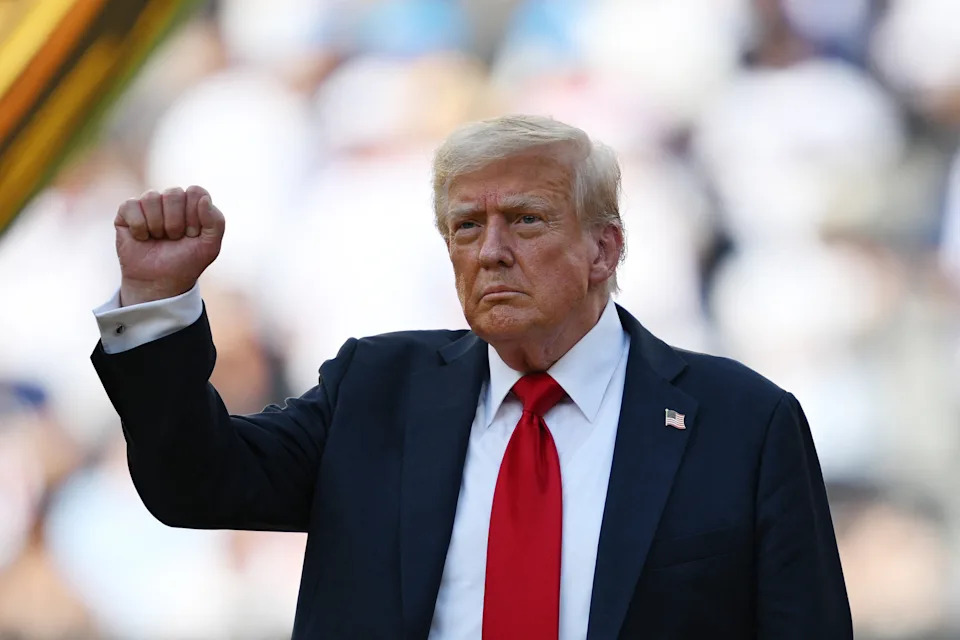
Markets are now ho-hum about tariff threats. Trump and Wall Street disagree about why.
Key Points
- White House View: The Trump administration believes market resilience to tariff threats indicates trader acceptance and support for rebalancing global trade, potentially encouraging President Trump to maintain his Aug. 1 deadline for new tariffs.**
- Market Skepticism: Many market observers argue that traders still oppose tariffs but are dismissive of Trump's latest threats, believing they may not materialize, reflecting a "Trump always chickens out" (TACO) sentiment.**
- Economic Risks: Critics and analysts, including JPMorgan Chase CEO Jamie Dimon, warn that markets may be underestimating the economic risks of tariffs, which could lead to higher interest rates, inflation, and a drag on growth.**
- Mixed Signals: While stock prices hit all-time highs, there’s a disconnect with tariff threats, and upcoming earnings seasons are expected to reveal the true impact of increased taxes on US companies.**
- Trade Developments: Ongoing trade talks and potential deals, like the recent one with Indonesia, add uncertainty, with Trump expressing indifference to outcomes with regions like the EU, potentially leading to higher tariffs.**
Summary
The article explores the conflicting interpretations of the stock market's muted response to President Trump's aggressive tariff threats. The White House sees this resilience as evidence of market support for rebalancing global trade, potentially emboldening Trump to stick to his Aug. 1 deadline for new tariffs. Conversely, many market analysts argue that traders remain opposed to tariffs but are skeptical of Trump’s threats materializing, a sentiment dubbed the "Trump always chickens out" (TACO) trade. Despite record-high stock prices, warnings from figures like JPMorgan Chase CEO Jamie Dimon highlight potential underestimation of economic risks, including inflation and growth slowdowns. Recent data showing a 2.7% annual CPI increase in June, alongside upcoming earnings reports, will provide further insight into tariffs’ impact. Trade developments, such as a deal with Indonesia reducing tariffs from 32% to 19%, add to the uncertainty, while Trump’s indifference to outcomes with regions like the EU raises the specter of higher tariffs. Critics argue the administration dismisses economic expertise, while Trump claims tariffs are fueling US economic strength, citing record stock highs and billions in tariff revenue. The coming weeks will be critical in determining whether markets are truly prepared for potential tariff-driven economic headwinds.
yahoo
July 16, 2025
Stocks


